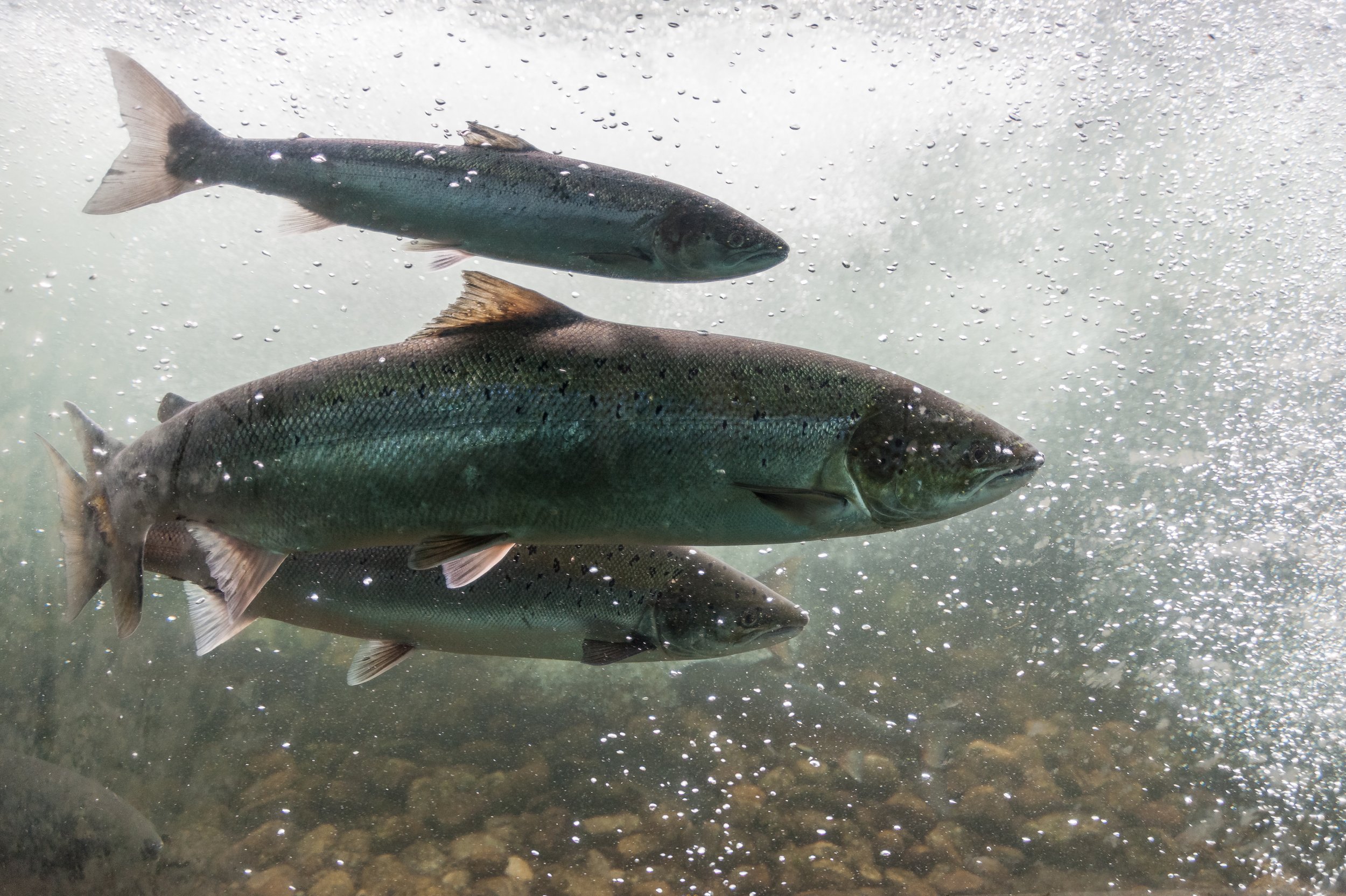Deploying microbes to support Scotland’s sustainable aquaculture industry
by Matthew Pope, Director and Founder, Cyanofeed
Matthew Pope, Director and Founder, Cyanofeed
Microbes are nature’s chemists
Microscopic organisms, or microbes, occupy the bottom rung of every food chain. A lowly existence, yet they proudly sustain the entire eclectic world of creatures that exists above them. Each of these creatures, directly or indirectly, consumes microbes and utilises the plethora of chemical compounds that they produce as a source of nutrition or as therapeutics. Have you ever wondered why salmon and flamingos are pink? Microbes! Ever wondered how beer, wine or cheese are made? Microbes again. How about the oxygen in our atmosphere, where does that come from? Yup, we have microbes to thank for that as well. Microbes are nature’s chemists. Within their membranes exists a virtually untapped world of vitamins, minerals, antibiotics and potential cancer therapies, not to mention an abundance of sustainable food!
Harnessing microbe power
This is where we come in. At Cyanofeed, we specialise in generating Microbial Delivery Platforms. We identify microbes with unique qualities, for example, extremely nutritious microbes with high protein content, or microbes that produce therapeutics and help cure disease. We then tailor these microbes so that they can be incorporated into animal feed, to release their precious cargo to the livestock when the time is right! Using cutting edge synthetic biology and automated, robotic, liquid-handling systems, we rapidly generate libraries of our Microbial Delivery Platforms, with each strain delivering a unique and valuable cargo.
Supporting sustainable aquaculture
We are currently focused on the aquaculture industry, as it is the fastest growing food-producing sector in the world, supplying over half of the fish and seafood consumed globally. Within this industry, we have an emphasis on salmon farming. Scotland is the world’s third largest producer of farmed salmon, churning out 7.6% of global production! This significant and growing Scottish industry is one that will contribute to the UK’s 2030 climate objectives, if managed correctly.
Aquaculture is more sustainable than conventional land farming, using less resources to rear a kilogram of fish than beef, for example. However, if salmon are to be reared sustainably, they first must be fed sustainably! Fortunately, microbes can be grown using minimal land and water resources and, in some cases, using just sunlight and carbon dioxide as growth substrates! We are currently generating Microbial Delivery Platforms that will be fed to Atlantic salmon offering them a sustainable source of essential vitamins and minerals as well as protection from disease. All our products are microbially derived and microbially delivered, nothing is chemically synthesised nor derived from fossil fuels!
We work closely with collaborators in Scotland and will continue to do so in the future. We successfully completed a Scale-Up project with the IBioIC in 2021 and in 2022, a selection of our Microbial Delivery Platforms will be used in a salmon feeding-trial at the University of Stirling. From there we will collaborate with Scottish salmon farmers to trial our microbial products in their off-shore farms, with the hope of supplying all Scottish salmon farms with sustainable, microbially derived and delivered nutrients and therapeutics!




